NFT
US SEC Sued Over NFT Art Regulation Claims in LA Court
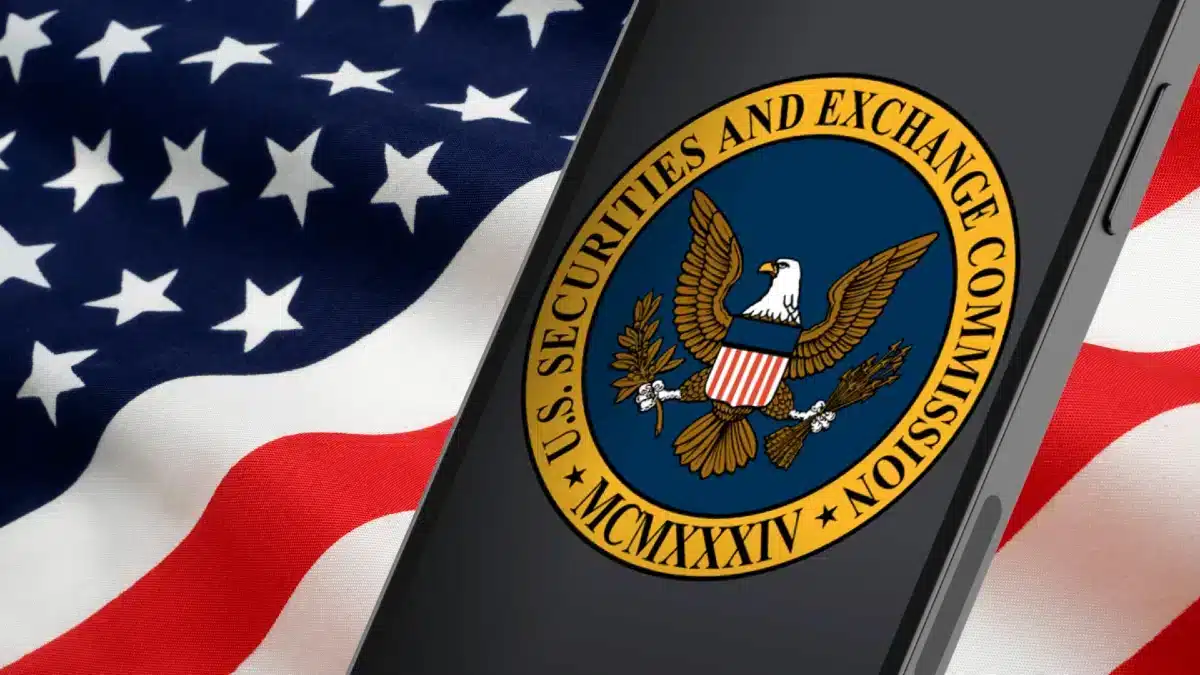
Brian L. Frye, a legal professor and conceptual artist, has sued the U.S. Securities and Exchange Commission (SEC) in an LA court for making NFTs securities under its regulation.
This lawsuit by Fry and Songadaymann is coming at a time when there is a debate on how to categorize digital art assets.
US SEC Sued Over NFT Art Regulation
According to the recent filing, the core of Fry’s lawsuit revolves around his view that the SEC’s interpretation of securities laws are too broad and do not promote artists who use NFT as their medium. Frye, Dogecoin’s Professor of Law, has been always questioning what he considers traditional interpretations of legal works especially such as his ‘SEC No-Action Letter Request’-a conceptual artwork.
In this project, according to him it was an unregistered security based on this kind of Howey Test which neither he received any response from the SEC regarding whether or not it is an unregistered security.
Today, @songadaymann and I sued the @SECGov in Louisiana federal court, asking for a declaration that the SEC can’t regulate the sale of NFT art. I’ve argued that the SEC is abusing its authority for years & now I’m testing my theory. Here’s the complaint. https://t.co/AD8xYpV0kC
— Brian L. Frye (@brianlfrye) July 29, 2024
Frye’s latest litigation explores how securities legislation impacts digital and conventional art markets. He argues that by taking its position, SEC restricts creativity among artists by imposing unnecessary barriers to entry into NFT space.
The attorney for Frye, Jason Gottlieb pointed out that this case would safeguard digital artist rights as well as put SEC within its regulatory limitations..
Role of NFTs in Art and Regulation
Frye’s lawsuit also underscores the broader implications of NFT regulation in the art market. NFTs, or non-fungible tokens, have surged in popularity among artists selling digital art, often fetching high prices at auctions.
However, the legal framework for NFTs is still unclear, as the US SEC has suggested that some NFTs could be considered securities, thereby requiring compliance with various rules and precautions. According to Frye’s complaint, art and, specifically, digital art sold as NFTs should not be treated as securities.
This approach opposes the SEC’s use of the Howey Test, a legal criterion developed in the 1940s to assess whether a certain transaction should be considered an investment contract. According to Frye, this approach of the SEC is unhelpful because art transactions, as contrasted from business transactions, are often based on the subjective qualities of the artwork.
SEC Accusations of Overreach
The case has garnered much attention especially because of Jason Gottlieb, Frye’s attorney on social media. Gottlieb had earlier defended the defendants in the DEBT BOX case in Utah which was rather infamous with the resignation of several members of the SEC and the shutting down of the SEC’s Utah branch.
XRP lawyer MetaLawMan pointed out that Gottlieb was instrumental in revealing dirty tactics in the SEC during that case and his involvement in Frye’s case may cause mayhem within the SEC.
Jason @ohaiom was the lawyer for the DEBT BOX defendants who famously exposed the lies of the SEC in a case in Utah.
That case ended with resignations & shuttering the SEC’s office in Utah.
Imagine the expressions at the SEC when they see Jason’s name on this complaint. 😂🍿 https://t.co/WEYbqWdDFP
— MetaLawMan (@MetaLawMan) July 29, 2024
Moreover, with Gary Gensler at the helm, the US SEC has intensified its crackdown on the crypto space, raising questions about the regulation of digital assets.
Therefore, the former President of the United States of America, Donald Trump, has also chimed in on the matter, vowing to remove Gensler from office on his first day back as president if he were to win the election. Subsequently, as reported by Coingape, Trump had blasted the SEC for its tough stance on digital assets promising to put an end to the “anti-crypto crusade” and the “persecution and weaponization” of digital assets.
Read Also: Galaxy CEO Warns Kamala Harris Against Senate Warren’s Anti-Crypto Stance
The presented content may include the personal opinion of the author and is subject to market condition. Do your market research before investing in cryptocurrencies. The author or the publication does not hold any responsibility for your personal financial loss.
NFT
Pudgy Penguins Linked Abstract Chain Goes Live On Mainnet

In an astounding development, Abstract Chain, an Ethereum Layer-2 network launched by Pudgy Penguins’ parent company, Igloo Inc., has gone live on the mainnet. Reportedly, the Ethereum-based Layer 2 blockchain is designed to empower crypto communities and facilitate user-centric Web3 applications.
Despite Abstract Chain’s mainnet launch, Pudgy Penguins’ PENGU token has seen a massive decline. While the token’s descent aligns with the broader market trend, the community remains anxious about its further movements.
Igloo’s Abstract Chain Sees Mainnet Launch
Abstract Chain is now live on the mainnet, opening it up to the public for usage. According to a press release, Abstract Chain is now available for consumers, with the mission of driving mass crypto adoption. Developed by Igloo Inc., the parent company of the popular NFT collection, Pudgy Penguins, Abstract Chain focuses on providing a user-friendly experience.
On January 26, Pudgy Penguins CEO Luca Netz shared an X post announcing Abstract Chain’s mainnet launch. Netz proclaimed that the launch would take place on January 27, effective today.
MONDAY MAINNET ✳️🐧 https://t.co/Cp5naJdoB4
— Luca Netz 🐧✳️ (@LucaNetz) January 25, 2025
Commenting on the launch of Abstract, Netz stated,
The launch of Abstract is more than just a technical milestone—it’s a shift in how everyday users – and not just crypto natives – experience blockchain. We’ve built Abstract to strip away the complexities of crypto, offering an intuitive and enjoyable experience that empowers users to explore and create effortlessly.
Igloo Introduces the Consumer Blockchain Platform- The Portal
Meanwhile, the Abstract Blockchain unveiled The Portal, which the L2 network describes as the consumer blockchain platform. In a more intriguing description, the blockchain network calls The Portal a “Digital Theme Park of Fun” that revolutionizes the way billions interact with blockchain technology.
The Portal allows users to set up a wallet using just their email address, providing seamless access to a vast ecosystem featuring over 100 community-driven decentralized applications (dApps). The platform aligns with Abstract’s vision of merging the simplicity of Web2 with the transformative potential of Web3.
Abstract Chain’s Zero-Knowledge Rollups
Leveraging ZKsync’s ZK stack, Abstract Chain utilizes zero-knowledge rollups. Reportedly, it provides scalable and cost-effective on-chain solutions with reduced transaction fees.
In response to Abstract’s mainnet launch, ZKsync co-founder Alex Gluchowski cited,
For blockchain to reach the masses, we must abstract away the complexity. Users need to experience better apps, builders need to have more engaged users, and creators need to be rewarded for their efforts – while cutting out unnecessary middlemen. Abstract building for everyone, not just Web3 power-users, is the path to get the next billion onchain.
Pudgy Penguins’ PENGU Token Falls 11%
Echoing the broader market sentiment, Pudgy Penguins’ PENGU token dropped by more than 11% in a day despite Abstract Chain’s mainnet launch. Mainly triggered by China’s DeepSeek AI launch, the crypto market is bleeding today, with Bitcoin slipping below $99k.
As of press time, PENGU is exchanging hands at $0.2282, with a decrease of 4.5% over the last seven days. In a month, the token has seen a massive fall of 37%. However, PENGU’s 24-hour trading volume has seen a hike of 48%, currently at $376 million. PENGU token’s substantial decline follows its last month’s remarkable surge that earned a staggering 14,500x return for an investor. With an initial investment of just $6, the investor made a profit of $87K.
Disclaimer: The presented content may include the personal opinion of the author and is subject to market condition. Do your market research before investing in cryptocurrencies. The author or the publication does not hold any responsibility for your personal financial loss.
NFT
CyberKongz Receives Wells Notice from SEC, Vows to Fight for NFT Clarity
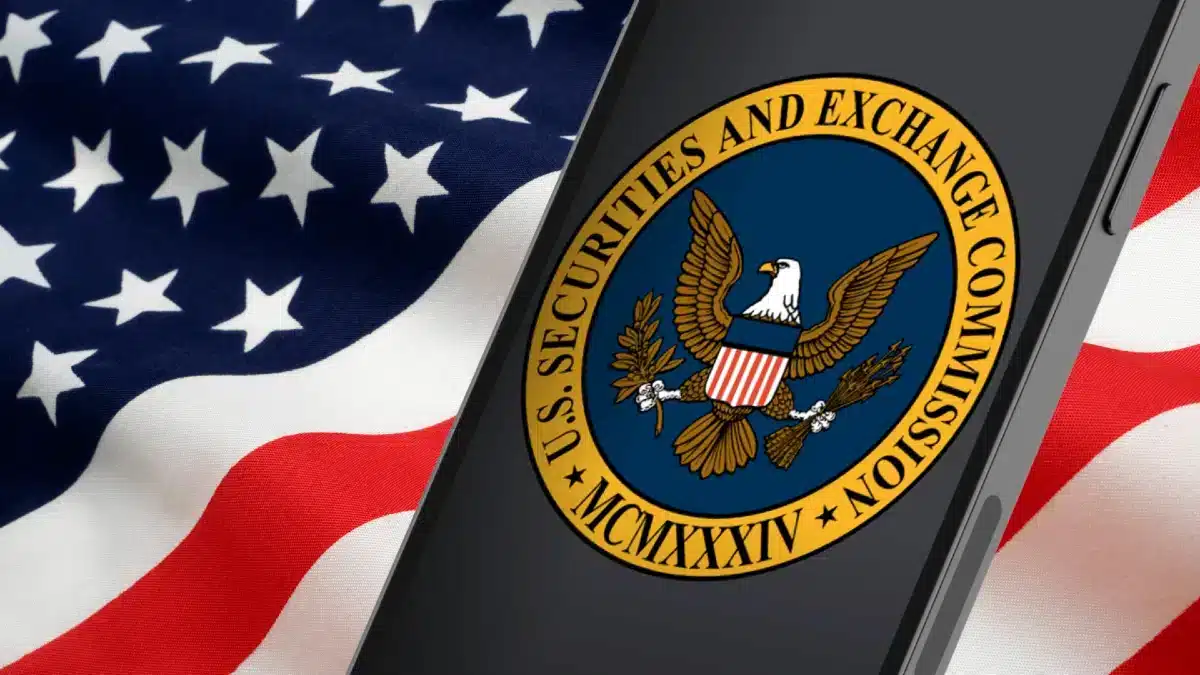
The NFT collection CyberKongz said the Securities and Exchange Commission (SEC) will likely charge it.
In a post on X on Monday, the collection said it received a Wells Notice, a letter from the SEC staff that recommends an enforcement action. It commented that the SEC is trying to pull through its laws before Joe Biden’s administration is over.
CyberKongz: “We Will Not Be Silenced”
In a statement, the NFT collection said it was disappointed with the approach of the SEC and vowed to stand up for and fight for greater clarity in the NFT space.
It also mentioned that the SEC raised concerns about its business with Genesis Kongz in April 2021, describing it as a “contract migration.”
It said:
CyberKongz added it intends to fight for clearer crypto regulation, particularly regarding NFT projects.
Eyeing Trump’s Crypto-Friendly Stance
The NFT collection has been vocal about the current administration, which it claims is anti-crypto in its approach. Just recently, as the US Senate Banking Committee was preparing to vote on SEC Commissioner Caroline Crenshaw’s renomination, lawyer Bill Hughes raised concerns about her stance on cryptocurrency regulation. Hughes argued that her renomination one could see as politically hostile to the crypto industry. This stands in contrast to the increasing support for crypto-friendly policies under the incoming administration.
CyberKongz is optimistic that the new administration will provide a more level playing field with a more just regulatory framework. In the meantime, the team comited to support all NFT projects on every blockchain platform.
In the past year, the SEC has acted against several cases related to NFTs. This includes lawsuits against podcast studio Impact Theory and Stoner Cats 2 LLC over unregistered NFT offerings that raised millions. The commission also doled out a Wells Notice to NFT marketplace OpenSea, signaling potential enforcement action.
It is up to wait and see how this enforcement will unfold in the transition of the commission’s leadership. The current SEC Chairman Gary Gensler announced his departure on January 20, in concert with the inauguration of President-elect Donald Trump. Trump has named former SEC Commissioner Paul Atkins, considered friendlier to the crypto industry, as the head of the SEC.
Disclaimer: The presented content may include the personal opinion of the author and is subject to market condition. Do your market research before investing in cryptocurrencies. The author or the publication does not hold any responsibility for your personal financial loss.
NFT
Unyted + Vesa

Unyted we (meta) stand
Many of the fancy metaverse projects take loooong to build and often require developers and budgets just to stay alive. In fact, one of my favorite ones had the whole company collapse around it in the build phase. I absolutely love what we’ve built with Superworld, for example, and what we’re about to release with Asvoria. Both of these require heavy machinery and rotation to come to life—and to be maintained.
Enter Unyted and my newest spatial Web3 space, which allows me to deliver fluent, up-to-date presentations on what’s happening now while also providing an overview of my entire career. I built it mostly by myself, with some guidance and glitch-fixing help from the team—special thanks to Tijana, Saskia, and Florian. I can update it in minutes to include a new project, presentation, or missing link. It’s freeing and necessary.
Unyted is at the forefront of spatial computing, offering innovative solutions that empower users to create, own, and monetize immersive 3D virtual environments. Their platform is designed to facilitate seamless transitions into the metaverse, providing tools for education, collaboration, and personalized digital experiences.
Link to join the metaverse
Link to join the X spaces.
Join us for a session with Ador, Bitcoin LIVE and others tomorrow 20.00 CET
Starting Thursday, we’ll kick things off with a joint presentation with Ador, and from there, we’ll host regular spaces that people can join visually. X is great for connecting with people, but for an artist, a lot is still missing from the full experience. Let’s see if we can bring these two innovations together in a sensible way.
 Watch the Tijana introduction to Unyted as well as my keynote held some time ago regarding web3, metaverse and creativity.
Watch the Tijana introduction to Unyted as well as my keynote held some time ago regarding web3, metaverse and creativity.
Delivering the Metaverse
They’re just starting out, and sure, sure there are a few glitches, but I’ve already given a couple of presentations that feel like a real departure from the world of Zoom. Nothing is ever perfect and getting going and constantly working on it is what keeps the thing alive.
It’s a step closer to delivering something of real value in the metaverse. People showed up to my first keynote in the space done together, they asked questions and then some were left to wonder around the space to explore it on their own. Promises kept. Those matter, after the last run.

I’ve been friends with Florian Krueger since the early blockchain days in London back in 2018, and we’ve collaborated on several projects. He remains one of my favorite people in the crypto space—always looking out for his people and tirelessly fighting for the ethical side of it. I was happy to hear he was starting a new venture and that I could also be a part of.
If you prefer the (virtual) city life?
Key Features of Unyted:
- Modular Environments: Unyted enables users to design and customize digital spaces, such as virtual homes, offices, or campuses, reflecting their unique vision. These environments can be monetized, allowing creators to generate revenue through their virtual properties.
- EdTech Solutions: The platform offers immersive educational experiences with features like AI-driven personalized learning paths, customizable avatars, and virtual classrooms. These tools aim to enhance student engagement and retention, providing scalable and cost-effective solutions for educational institutions.
- Data Protection and Security: Operating under EU regulations and compliant with GDPR, Unyted ensures top-tier data protection. Users maintain complete control over their personal and institutional data, upholding responsible practices in the metaverse.
- Sustainability Commitment: Unyted is dedicated to sustainability, calculating energy consumption and offsetting carbon emissions for each project. Through Unyted.World, users can stake tokens specifically for carbon offsetting, promoting environmental responsibility within the digital landscape.
In many ways what is important about the metaverse is our ability to pre-visualise the world we would like to live in, and then walk toward that direction.
Founded in 2022 by Gaby K. Slezák and Florian Krueger, Unyted envisions a decentralized, independent metaverse where users have equal access to a secure three-dimensional internet. Their mission is to empower individuals to shape their digital futures, fostering a community where creativity and collaboration thrive.
For those seeking to explore the metaverse, Unyted offers consulting services to guide organizations through VR, AR, blockchain, Web3, and Web4 technologies. Their seasoned team provides strategy insights and design expertise to craft unique digital experiences aligned with organizational visions.
Unyted stands as a visionary force in the evolving digital landscape, pioneering innovation while prioritizing user ownership, open collaboration, data protection, and sustainability.
Ador aka BitSavage will join us for the Monday talk in which we also dwell deeper into DAF – the Department of Artistic Freedom
Asvoria coming up soon!

 I’ll soon travel to Bulgaria to film some content in the Asvoria linked Hotel Satoshi Nakamoto, as well as guide the team on advances in our shiny updated metaverse space.
I’ll soon travel to Bulgaria to film some content in the Asvoria linked Hotel Satoshi Nakamoto, as well as guide the team on advances in our shiny updated metaverse space.
The art cars are also gearing up for their auction in Dubai in January, but more on that later.
See you Dec 5th 20.00 CET:
Link to join the metaverse
Link to join the X spaces.
Much to build,
VESA
Crypto Artist, Speaker, Consultant, Writer
All links to physical, NFTs, and more below

-

 Ethereum24 hours ago
Ethereum24 hours ago$2,300 Emerges As The Most Crucial Resistance
-

 Market20 hours ago
Market20 hours agoBitcoin Price Battles Key Hurdles—Is a Breakout Still Possible?
-

 Bitcoin18 hours ago
Bitcoin18 hours ago$500 Trillion Bitcoin? Saylor’s Bold Prediction Shakes the Market!
-
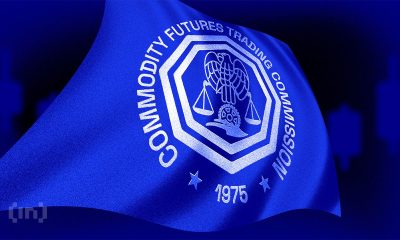
 Market23 hours ago
Market23 hours agoCFTC’s Crypto Market Overhaul Under New Chair Brian Quintenz
-

 Altcoin23 hours ago
Altcoin23 hours agoA Make or Break Situation As Ripple Crypto Flirts Around $2
-

 Market21 hours ago
Market21 hours agoIs CZ’s April Fool’s Joke a Crypto Reality or Just Fun?
-

 Bitcoin19 hours ago
Bitcoin19 hours agoBig Bitcoin Buy Coming? Saylor Drops a Hint as Strategy Shifts
-

 Altcoin16 hours ago
Altcoin16 hours agoWill XRP, SOL, ADA Make the List?



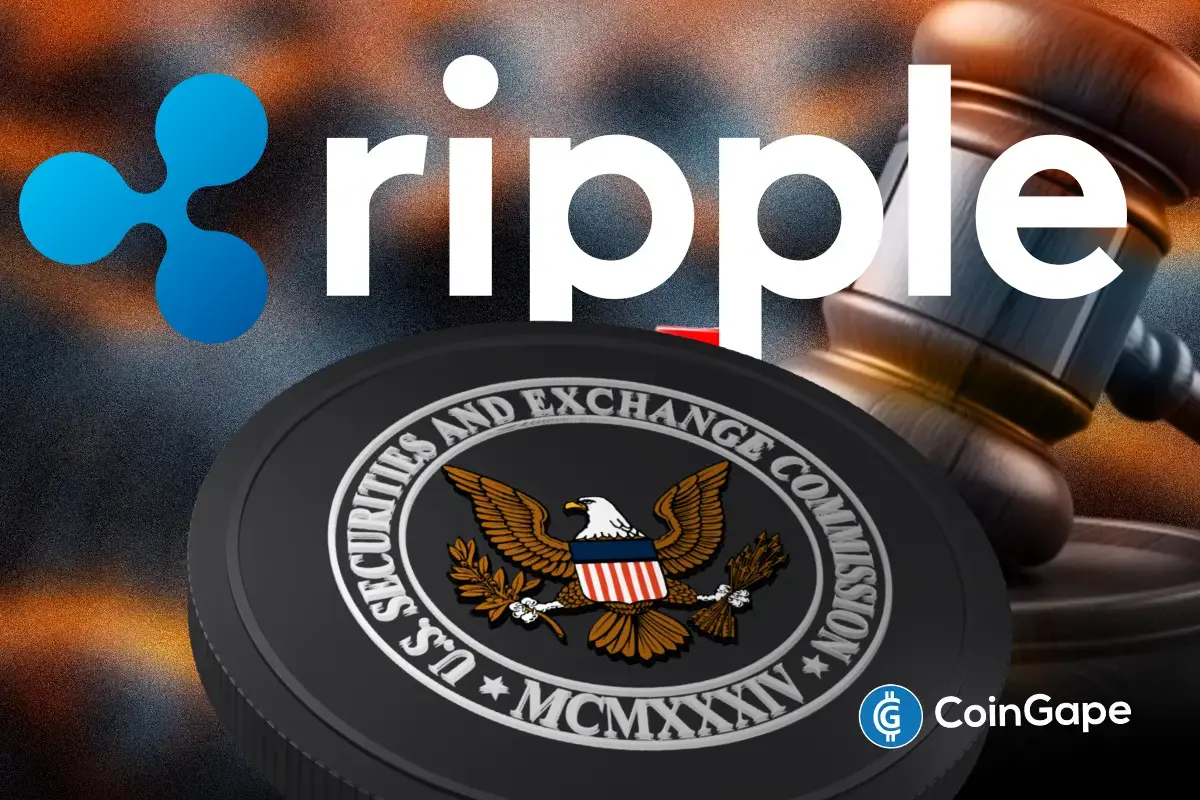

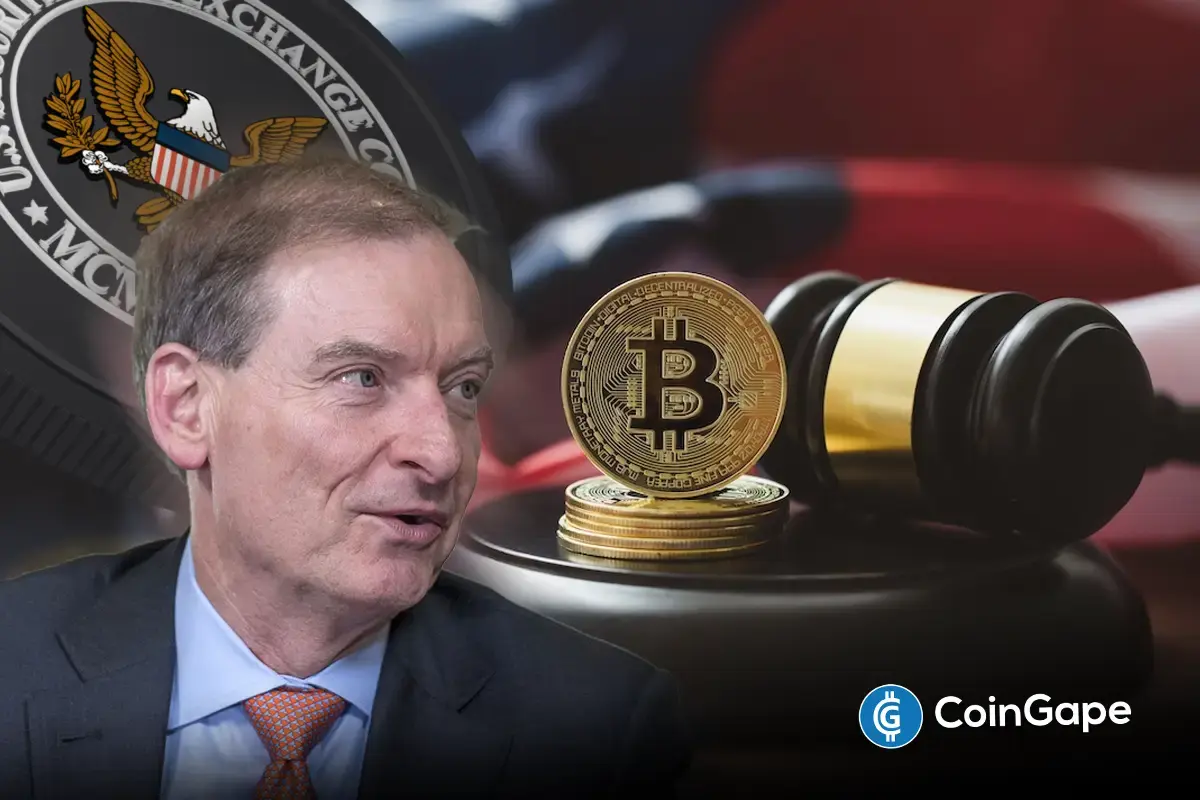



















✓ Share: